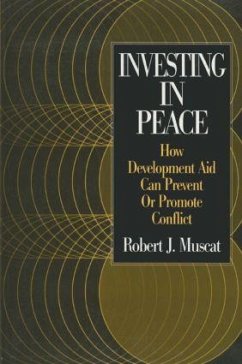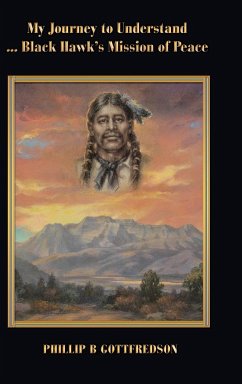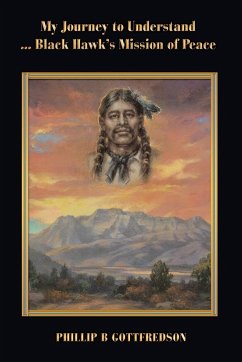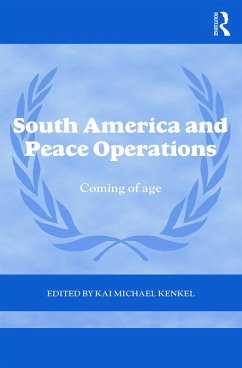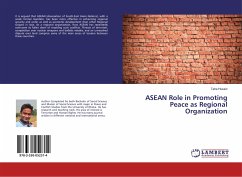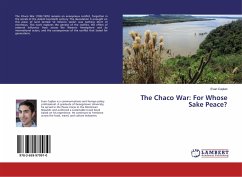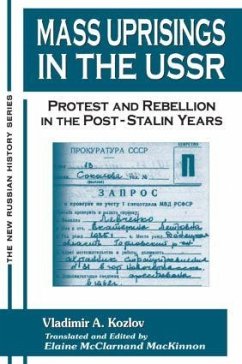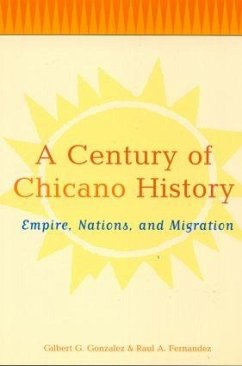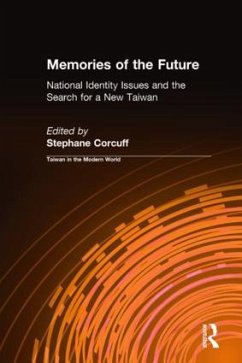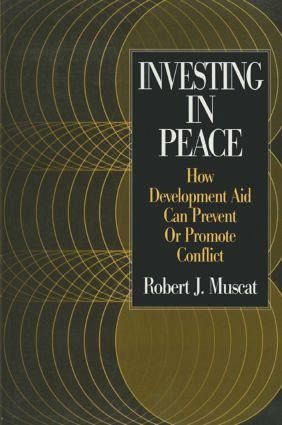
Investing in Peace
How Development Aid Can Prevent or Promote Conflict
Versandkostenfrei!
Versandfertig in 1-2 Wochen
167,99 €
inkl. MwSt.
Weitere Ausgaben:

PAYBACK Punkte
84 °P sammeln!
International intervention in internal wars has gained a degree of legitimacy in the post-cold war world, but in practice it is still problematic. Response to these conflicts has remained mainly diplomatic -- and belated. Is there anything international actors can do to prevent, or at least ameliorate, such conflicts? Are conflict-prevention measures already being applied, and sometimes succeeding so well that we are unaware of their effectiveness? If so, what can we learn from them? In this book, Robert A. Muscat, a veteran international development expert, attempts to answer these questions ...
International intervention in internal wars has gained a degree of legitimacy in the post-cold war world, but in practice it is still problematic. Response to these conflicts has remained mainly diplomatic -- and belated. Is there anything international actors can do to prevent, or at least ameliorate, such conflicts? Are conflict-prevention measures already being applied, and sometimes succeeding so well that we are unaware of their effectiveness? If so, what can we learn from them? In this book, Robert A. Muscat, a veteran international development expert, attempts to answer these questions by examining nine cases in which the work of development agencies exacerbated or ameliorated the root causes of conflict.




